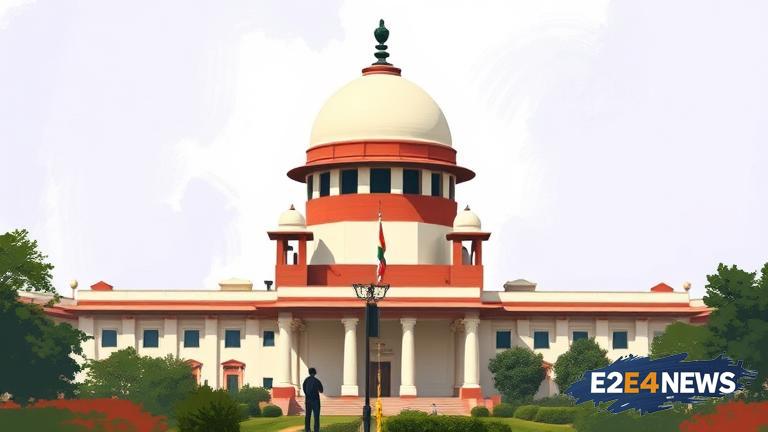The Supreme Court of India has recently voiced its concern over the inordinate delays by High Courts in pronouncing judgments, a issue that has been plaguing the Indian judiciary for quite some time. The apex court’s remarks came in response to a petition filed by a litigant who had been waiting for a judgment from a High Court for an unreasonably long period. The Supreme Court’s concern is not unfounded, as delays in justice can have severe consequences for the litigants, including financial losses, emotional distress, and loss of faith in the judicial system. The Indian judiciary has been facing criticism for its slow pace of delivering justice, with many cases pending for years, even decades. The Supreme Court has been trying to address this issue by implementing various measures, such as increasing the number of judges, introducing technology to speed up the process, and setting deadlines for lower courts to deliver judgments. However, despite these efforts, the problem persists, and the Supreme Court’s concern is a reminder that more needs to be done to ensure timely justice. The delays in judgments can be attributed to various factors, including the heavy workload of judges, lack of infrastructure, and inefficient court management. The Indian government has also been criticized for not doing enough to address the issue, with many arguing that the judiciary is not being given the necessary resources to function efficiently. The Supreme Court’s concern is not limited to the High Courts, as the issue of delayed judgments is prevalent across all levels of the judiciary. The lower courts, which are the first point of contact for most litigants, are often overwhelmed with cases, leading to delays in hearings and judgments. The Supreme Court has been trying to address this issue by setting up fast-track courts and introducing measures such as video conferencing to speed up the process. However, more needs to be done to ensure that justice is delivered in a timely manner. The issue of delayed judgments is not only a concern for the litigants but also for the overall health of the judiciary. When judgments are delayed, it can lead to a loss of faith in the system, which can have far-reaching consequences. The Indian judiciary has been considered one of the most independent and robust in the world, but the issue of delayed judgments is a blot on its reputation. The Supreme Court’s concern is a wake-up call for the Indian government and the judiciary to take concrete steps to address the issue. The government needs to allocate more resources to the judiciary, including increasing the number of judges, improving infrastructure, and introducing technology to speed up the process. The judiciary also needs to take steps to improve its management, including setting deadlines for judgments and introducing measures to reduce the workload of judges. The issue of delayed judgments is a complex one, and it will require a concerted effort from all stakeholders to resolve it. The Supreme Court’s concern is a step in the right direction, and it is hoped that it will lead to concrete actions to address the issue. The Indian judiciary has a reputation for being independent and fair, but the issue of delayed judgments is a challenge that needs to be overcome. The Supreme Court’s concern is a reminder that the judiciary is not immune to criticism and that it needs to be accountable to the people. The issue of delayed judgments is a test of the judiciary’s ability to deliver justice in a timely manner, and it is hoped that it will rise to the challenge. The Indian government and the judiciary need to work together to address the issue, and it is hoped that the Supreme Court’s concern will be a catalyst for change. The issue of delayed judgments is a concern for all stakeholders, including litigants, lawyers, and judges, and it is hoped that it will be addressed soon. The Supreme Court’s concern is a call to action, and it is hoped that it will lead to concrete steps to ensure timely justice. The Indian judiciary has the potential to be one of the best in the world, but it needs to overcome the challenge of delayed judgments. The Supreme Court’s concern is a reminder that the judiciary is not perfect and that it needs to be constantly improved. The issue of delayed judgments is a challenge that needs to be overcome, and it is hoped that the Supreme Court’s concern will be a step in the right direction.
